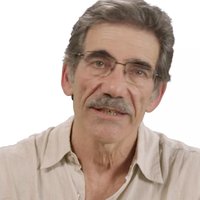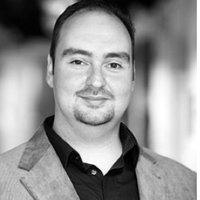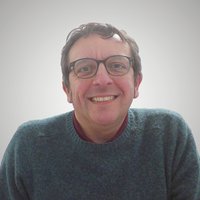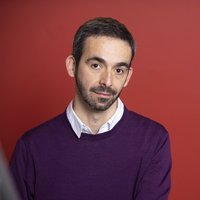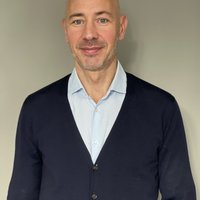Tuberculosis
- Duration: 9 weeks
- Effort: 23 hours
- Pace: ~2h30/week
- Languages: English and french
What you will learn
At the end of this course, you will be able to:
- Describe the global epidemiology of TB, including M. africanum.
- Explain the different clinical forms of TB: subclinical, pediatric, HIV co-infections.
- Define the best tests for diagnosing TB and detecting drug resistance.
- Clarify the use of whole genome sequencing to define the phylogeny, trace transmission chains and detect drug resistance.
- Specify up-to-date treatments for drug-resistant TB and non-tuberculous mycobacteria.
- Discuss the immune response to TB infection and new vaccine trials.
Description
Tuberculosis has been a scourge of humanity for thousands of years. Today, of all infectious agents except SARS-Cov2, tuberculosis is still the biggest killer, surpassing even HIV and malaria. The global incidence is decreasing, but too slowly to achieve the goal of eventual eradication. This is partly because the disease takes months to develop and at least 6 months of multidrug chemotherapy to cure. In most people the infection becomes latent but can emerge decades later to cause serious illness. Over the past 3 decades, multidrug resistance has become an increasing problem, making TB even harder to cure. The MOOC takes stock of tuberculosis today and the challenges posed by drug resistance and therapeutic advances.
Format
This MOOC is composed of 6 teaching chapters. Each chapter has 4 to 6 sequences. Each sequence consists of a video of about 10 minutes and a MCQ so that students can test their knowledge. The videos are in English with French and English subtitles.
Prerequisites
This MOOC is aimed at people interested in Tuberculosis: microbiologists, researchers in infectious diseases, biologists, physicians, epidemiologists, public health workers and patient education, as well as students in any of these areas.
A bachelor of science, a degree in a health related field or a good scientific background is recommended to be able to participate in this MOOC.
Assessment and certification
To follow this course, you can choose between two options:
- The Discovery Course gives access to videos, quizzes and discussions in the forum. No badge is issued for this course. Registration is free.
- The Qualifying Course leads to a certificate. In addition to the activities of the Discovery Course, you will have to take a one-hour supervised distance learning exam, consisting of 30 multiple-choice questions (MCQs) and obtaining 18 correct answers. The registration fee for the Qualifying Course is 150€.
Successful completion of the Qualifying Course gives you the opportunity to apply for the Institut Pasteur Online Diploma of Infectious Diseases (DNM2IP), which consists of 5 certificates to Institut Pasteur MOOCs on infectious diseases. To learn more, visit the Institut Pasteur's web page dedicated to this diploma.
Course plan
- C1-1. Intro and patient presentation - Howard Takiff (Institut Pasteur - France)
- C1-2. History of TB - Stephan Stenger (Ulm University - Germany)
- C1-3. TB Epidemiology - Philippe Glaziou (WHO)
- C1-4. Effect of the COVID pandemic on TB epidemiology - Nim Arinaminpathy (Imperial College - United Kingdom)
- C1-5. Immunology of TB introduction - Steffen Stenger (Ulm University - Germany)
- C1-6. BCG Vaccin - Brigitte Gicquel (Institut Pasteur - France)
- C2-1. Pulmonary TB - Thomas Maitre (APHP - France)
- C2-2. Pediatric TB - Christophe Delacourt (APHP - France)
- C2-3. Tuberculosis, HIV, Diabetes - Véronique Joly (APHP - France)
- C2-4. Immune Reconstitution inflammatory Syndrome - Howard Takiff (Institut Pasteur - France)
- C2-5. Subclinical TB - Marcel Behr (Mc Gill University - Canada)
- C3-1. Radiological diagnosis of TB and contribution of Artificial Intelligence - Guillaume Chassagnon (APHP - France)
- C3-2. Interferon gamma release assays for the diagnosis of TB - Elisabeth Bouvet (APHP - France)
- C3-3. Microbiology for TB diagnosis - Philippe Morand (APHP - France)
- C3-4. Nucleic acid tests for TB (NAATs) - Philippe Morand (APHP - France)
- C3-5 Pitfalls in the molecular diagnosis of TB - Nicolas Veziris (APHP - France)
- C3-6 Bacteriological basis of anti-tuberculosis treatment - Nicolas Veziris (APHP - France)
- C4-1. Diagnosing resistance beyond rifampicin resistance - Philippe Morand (APHP - France)
- C4-2. Molecular techniques in lab flow - Florence Morel (APHP - France)
- C4-3. Whole genome sequencing of M tuberculosis as an epidemiological marker - Dick van Soolingen (National Institute for Public Health and the Environment, Bilthoven, Netherlands)
- C4-4. Whole genome sequencing of clinical Mycobacterium tuberculosis complex isolates - Stefan Niemann (Research Center Borstel Leibniz Lung Center - Germany)
- C4-5. New drugs, new regimens - Nicolas Veziris (APHP - France)
- C5-1. The evolution of tuberculosis-causing mycobacteria - Roland Brosch (Institut Pasteur - France)
- C5-2. M. africanum - a West African Cause of TB - Bouke de Jong (Institute of Tropical Medicine Antwerp - Belgium)
- C5-3. M. bovis and One health - Steve Gordon (University College Dublin - Ireland)
- C6-1. Innate immunity against TB - Anca Dorhoi (Friedrich-Loeffler-Institut - Germany)
- C6-2. T cell response in TB - Simone Joosten (LUMC - Netherland)
- C6-3. Host-directed therapy against TB - Ludovic Tailleux (Institut Pasteur - France)
- C6-4. TB Vaccines - Carlos Martin (University of Zaragoza - Spain)
- Option 1: Meningitis - Howard Takiff (Institut Pasteur - France)
- Option 2: Pleural effusion - Howard Takiff (Institut Pasteur - France)
- Option 3: Non Tuberculous Mycobacteria - Jean-Louis Herrmann (APHP - France )
- Option 4: Non Tuberculous Mycobacteria treatments - Jean-Louis Herrmann (APHP - France)
- Option 5: History of drug resistance in TB - Howard Takiff (Institut Pasteur - France)
- Option 6: How TB drugs work? - Howard Takiff (Institut Pasteur - France)
Course team
Howard Takiff
Categories
Fadel SAYES
Categories
Nicolas VEZIRIS
Categories
Ludovic TAILLEUX
Categories
Philippe MORAND
Categories
Organizations
License
License for the course content

Attribution-NonCommercial-NoDerivatives
You are free to:
- Share — copy and redistribute the material in any medium or format
Under the following terms:
- Attribution — You must give appropriate credit, provide a link to the license, and indicate if changes were made. You may do so in any reasonable manner, but not in any way that suggests the licensor endorses you or your use.
- NonCommercial — You may not use the material for commercial purposes.
- NoDerivatives — If you remix, transform, or build upon the material, you may not distribute the modified material.
License for the content created by course participants

All rights reserved
"All rights reserved" is a copyright formality indicating that the copyright holder reserves, or holds for its own use, all the rights provided by copyright law.



